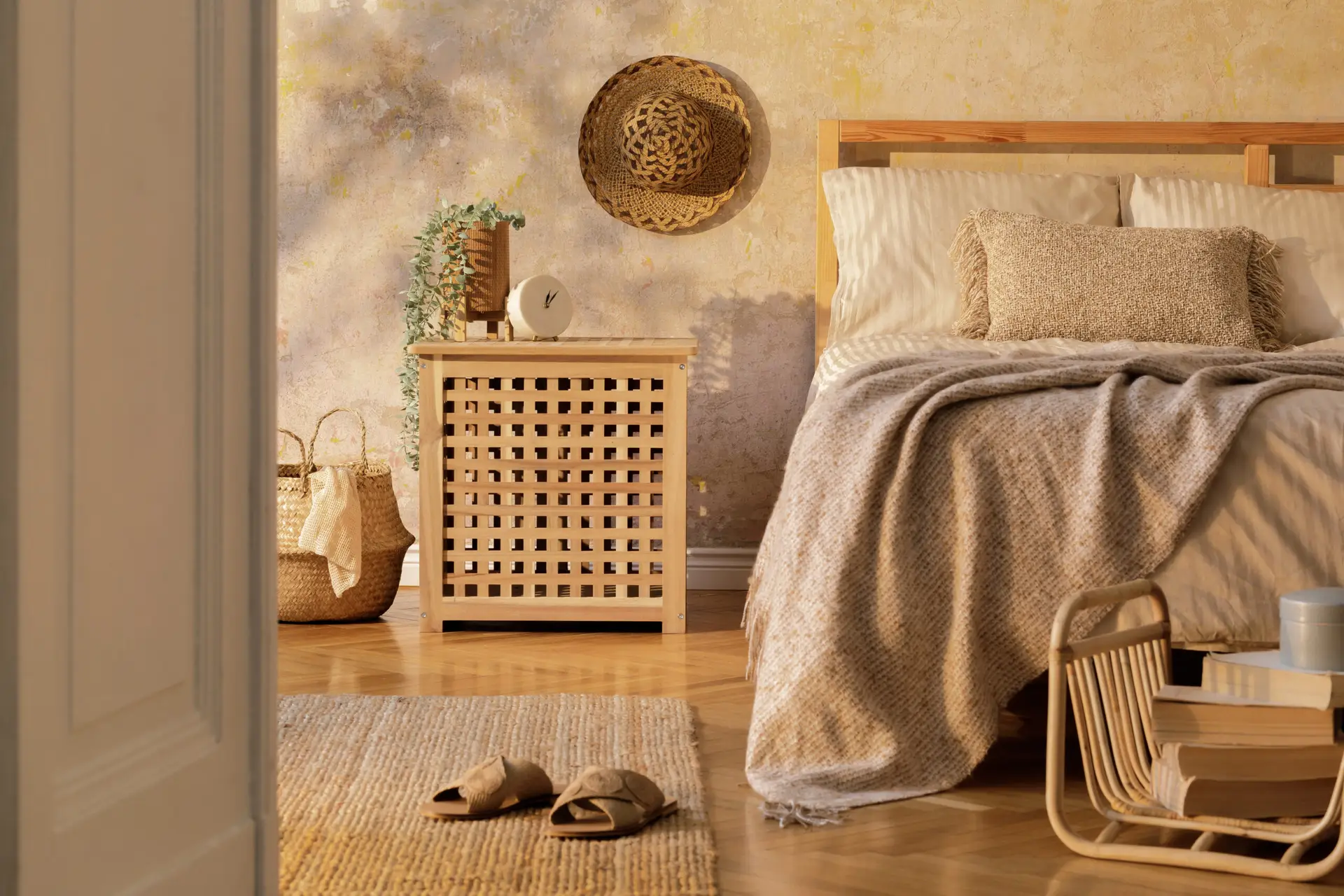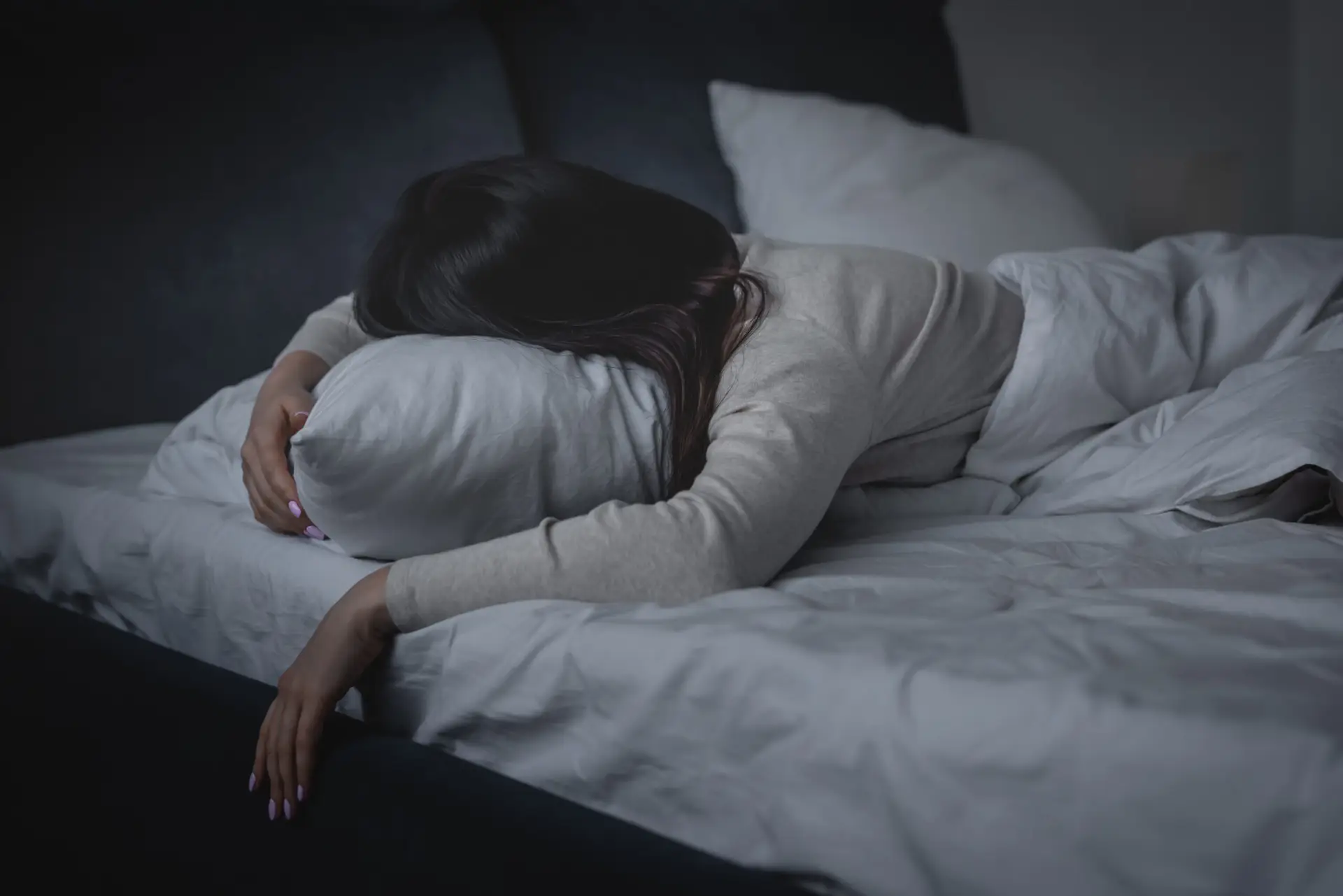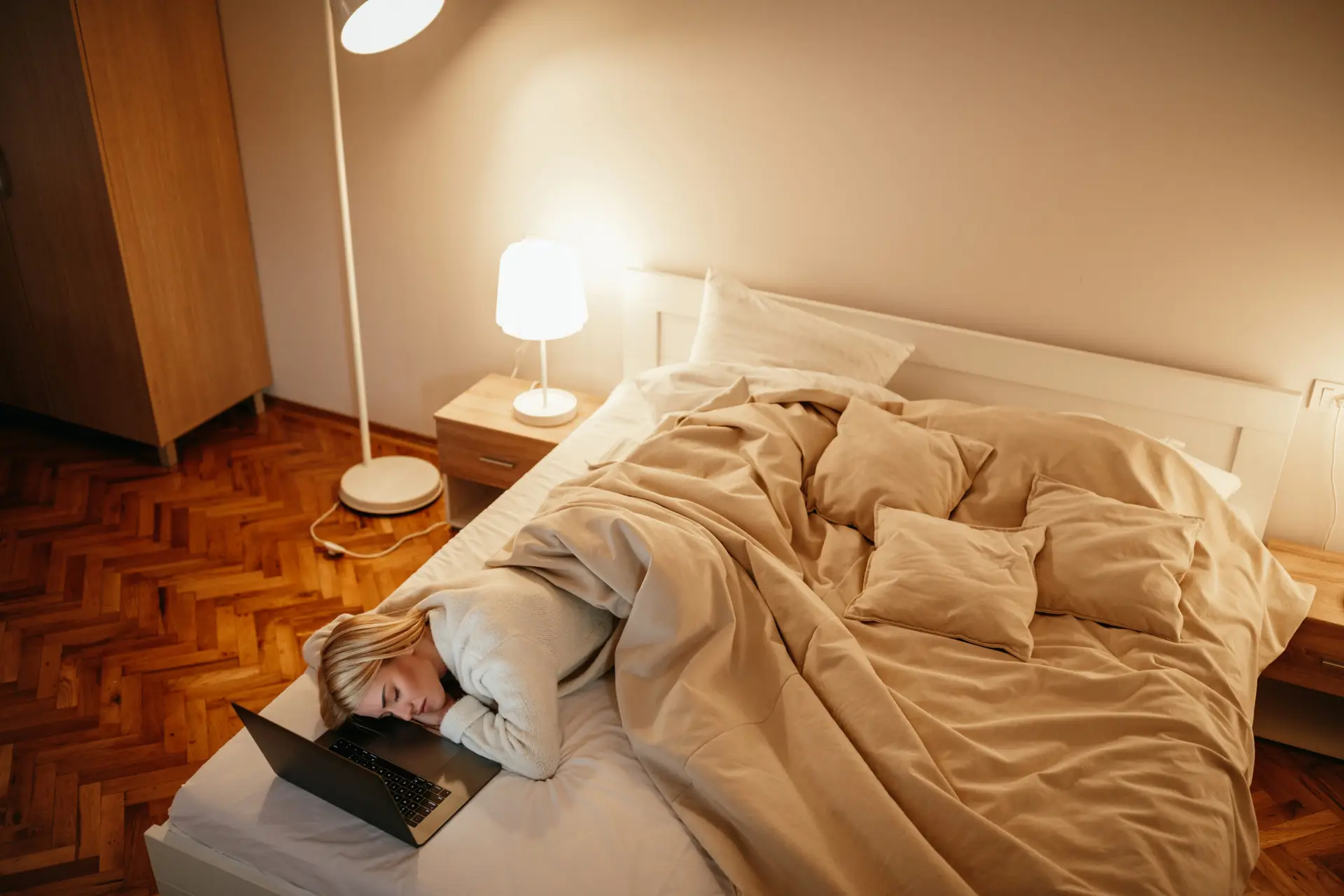The most important thing is for the environment to be
dark, quiet, and cool
The ideal sleep environment is a completely dark and quiet space with a temperature between 16–20°C.
Your sleep environment greatly influences how easily you fall and stay asleep. Darkness signals the brain to release melatonin, a hormone that promotes sleep. Quietness minimizes distractions that might wake you up, while a cooler bedroom (60–67°F or 16–20°C) mimics the body's natural temperature drop during sleep. Noise-canceling tools like earplugs or white noise machines are particularly helpful in noisy environments. A well-optimized environment can significantly improve sleep quality and duration.





